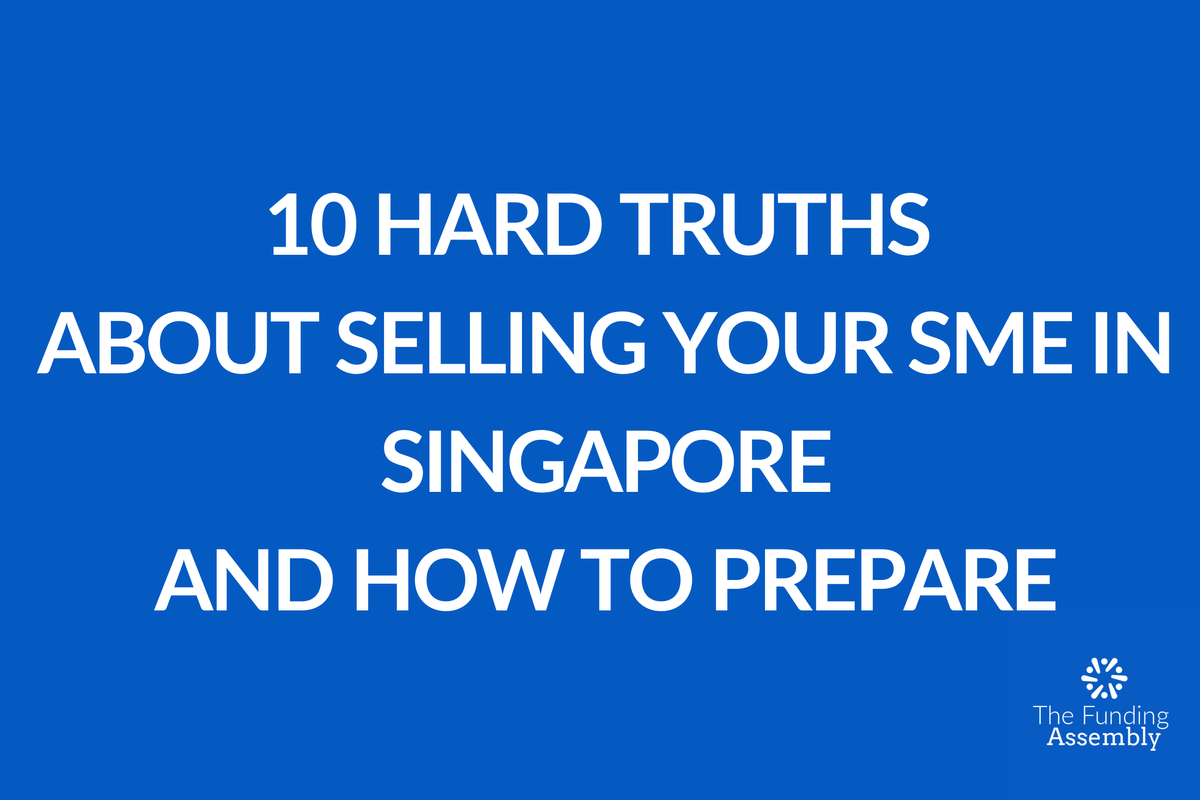An Essential Guide for F&B and SME business owners planning a successful exit
Brought to you by: The Funding Assembly (TFA) Transforming M&A for SMEs with qualified buyers, deal flow systems, and success-based fees with zero upfront.
Introduction
Selling your business — especially one built from scratch — is one of the biggest decisions of your life. In Singapore’s fast-paced and competitive SME landscape, especially in the F&B sector, many owners enter the process unprepared and unaware of the harsh realities that await.
This guide answers the 10 most frequently asked questions about selling a business in Singapore, while also revealing the “hard truths” behind each one. Learn how to prepare, what pitfalls to avoid, and how to maximise your exit with confidence.
1. How do I prepare my business for sale to maximize its value?
Hard Truth: Finding a Buyer Is Hard
Buyers want businesses that are ready to run without you. The more buttoned-up your operations and clean your financials, the more attractive you’ll be.
What to Do:
- Clean up your financial records.
- Streamline daily operations.
- Settle outstanding liabilities.
- Review contracts, licenses, and staff matters.
- Reduce dependence on the owner.
2. How is my business valued, and what methods are used in Singapore?
Hard Truth: Overvalued Businesses Kill Deals
Your business isn’t worth what you hope — it’s worth what someone is willing to pay, based on actual financials and market comparisons.
What to Do:
- Use valuation methods like EBITDA multiples, asset-based valuation, DCF, or comparable transactions.
- Engage a professional valuer or M&A advisor.
- Understand your business from the buyer’s perspective.
3. What are the typical steps involved in selling a business in Singapore?
Hard Truth: Messy Financials Kill Deals
Even if your business is attractive, disorganised accounts or missing paperwork can derail everything.
What to Do:
- Follow a structured deal flow: Preparation → Valuation → Broker → Marketing → Due Diligence → Negotiation → Legal Completion.
- Get your house in order early.
4. How can I maintain confidentiality during the sale process?
Hard Truth: Brokers Can Help — or Hurt
A careless broker may leak sensitive info and jeopardize your business. Confidentiality must be non-negotiable.
What to Do:
- Use NDAs.
- Choose brokers who have proven confidentiality protocols.
- Share sensitive info only with verified, serious buyers.
5. What legal and tax considerations should I be aware of?
Hard Truth: Financing Limits Buyer Pool
Not every buyer can secure financing. This limits your options and affects deal structure and tax exposure.
What to Do:
- Ensure tax compliance and clarity on capital gains and GST implications.
- Review all employment contracts, leases, and licenses.
- Work with tax advisors to structure a tax-efficient sale.
6. Should I use a business broker, and what are the benefits?
Hard Truth: Low Buyer Competition Limits Valuations
The right broker brings the right buyers. Without one, you risk underselling or not selling at all.
What to Do:
- A good broker brings market insight, buyer networks, valuation expertise, and negotiation support.
- Vet brokers thoroughly.
7. How long does it typically take to sell a business in Singapore?
Hard Truth: Succession Drives Most Deals
Selling is not just about valuation — it’s often driven by life events like retirement, burnout, or health issues. These personal factors can rush or delay timelines.
What to Do:
- Start early — ideally 12–24 months before your intended exit.
- Be realistic: most deals take 6–12 months to complete.
8. What are the key considerations for the sale structure (example cash, seller financing, earn-outs)?
Hard Truth: Owner Dependency Is a Deal Killer
If the business depends too heavily on you, buyers may ask for performance-based payouts or reject the deal altogether.
What to Do:
- Plan for flexible structures: all-cash, seller financing, or earn-outs.
- Build a strong second-tier team.
- Document SOPs and automate processes.
9. How do I handle due diligence and what should I expect from buyers?
Hard Truth: Post-Deal Integration Is Critical
Due diligence is not just about scrutiny. Buyers are preparing for what happens after the deal — and so should you.
What to Do:
- Prepare full documentation: financials, HR, IP, operations, legal, etc.
- Assist in integration planning.
- Ensure knowledge transfer and staff continuity.
10. What happens after the sale is completed?
Hard Truth: Founders Must Be Ready to Let Go
You may have sold the business, but the emotional part of letting go is often the hardest and most unexpected challenge.
What to Do:
- Plan for your next phase.
- Be available for transition support.
- Prepare mentally and emotionally for separation.
Bonus: Deal Fatigue — The Silent Deal Killer
Hard Truth: M&A is a marathon, not a sprint
Many deals fall apart because sellers get tired, distracted, or emotionally overwhelmed.
What to Do:
- Set realistic expectations.
- Hire experienced advisors.
- Stay committed and let professionals manage the process.
Final Thoughts
Selling your business is never just a financial decision. It’s a personal one — often involving identity, legacy, and family.
At The Funding Assembly, we help SME owners navigate these hard truths with clarity, confidence, and care. Our process is built on transparency, automation, and alignment — we only succeed when you do.

